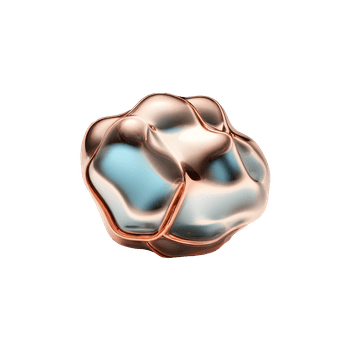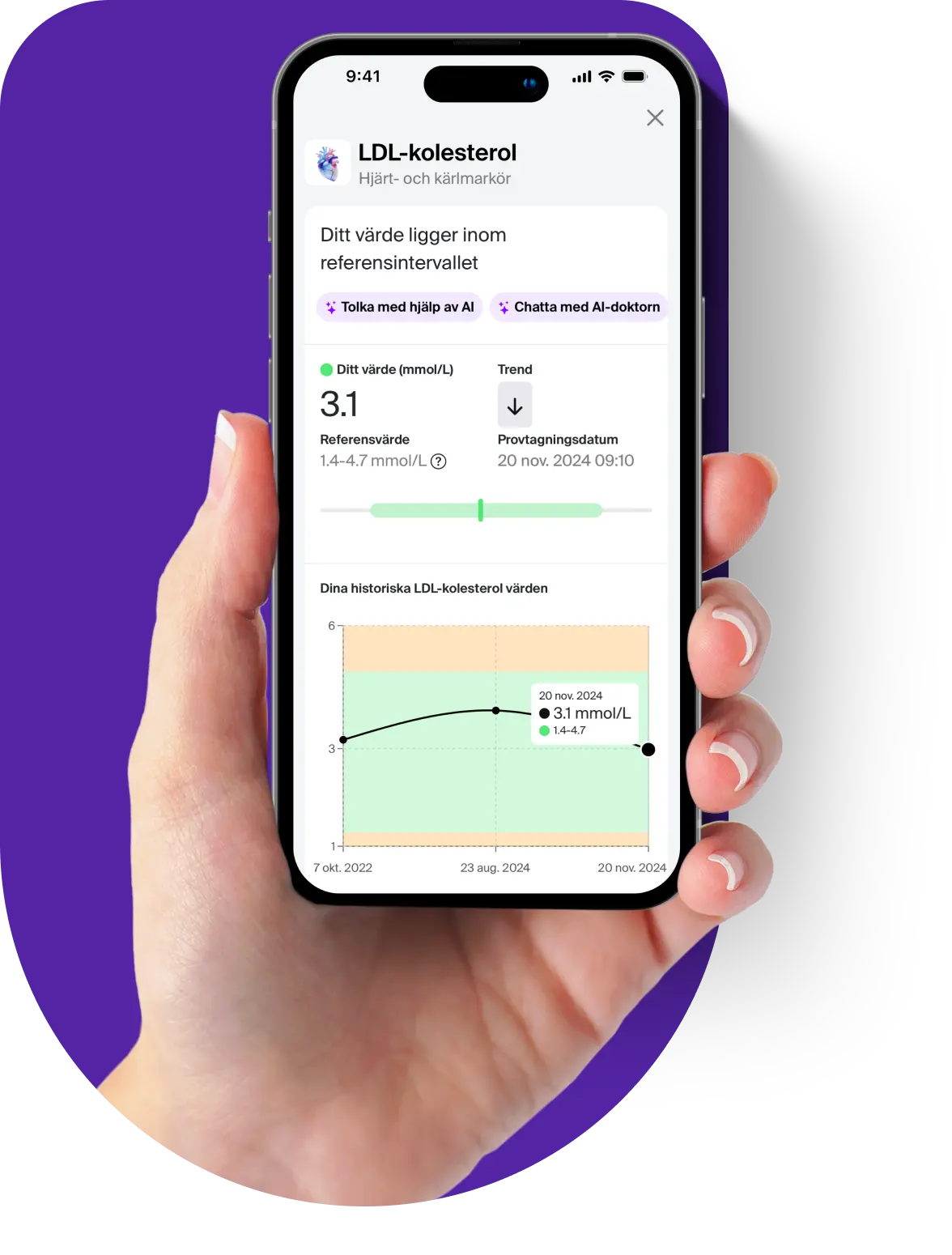Order a blood test for selenium analysis
S-Selenium is a blood test that measures the concentration of selenium in serum. Selenium is an essential trace element that the body needs in small amounts but is of great importance for several central biological processes. It is a key component of selenium-dependent enzymes – selenoproteins – that participate in the body's antioxidant protection, immune defense, fertility and hormone regulation.
Imbalances in selenium status can both cause and reflect underlying disease conditions. Low levels of selenium often occur in inflammatory bowel diseases, malabsorption or long-term lack of a selenium-rich diet. Elevated levels are uncommon but can occur with excessive supplementation.
When is S-Selenium analysis used?
The S-Selenium analysis is mainly used to:
- Identify selenium deficiency, especially in nutritional imbalances, malnutrition or gastrointestinal conditions.
- Investigate thyroid disorders where selenium deficiency can affect the conversion of T4 to the active hormone T3.
- Follow up treatment with selenium supplements, especially in diagnosed deficiency or to support thyroid function.
- Assess the body's antioxidant capacity in cases of prolonged oxidative stress, chronic inflammation or autoimmune conditions.
Selenium and the thyroid gland – an important connection
For those of you who have a confirmed thyroid disease – such as hypothyroidism, autoimmune thyroiditis (Hashimoto's disease) or conversion problems between T4 and T3 – selenium can be a crucial factor in your hormonal balance.
Selenium is needed to activate the enzyme (iodothyronine deiodinase) that converts the inactive hormone T4 (thyroxine) into the biologically active T3 (triiodothyronine). This conversion takes place in the liver and other tissues, and in the event of a selenium deficiency, the production of T3 can decrease, which in turn can lead to symptoms such as fatigue, chills, brain fog, weight gain and low metabolism – even though TSH and T4 may be within reference.
Selenium deficiency has also been linked to an increased risk of developing autoimmune thyroid diseases, especially Hashimoto's thyroiditis. Some studies show that selenium supplementation can reduce levels of antibodies against the thyroid gland (TPOAk), although the effect may vary from person to person.
Therefore, analysis of S-Selenium is recommended as a complement to other thyroid tests, such as TSH, T3 and T4, for a more complete picture of your hormonal health.
Note! The blood sample can only be taken at clinics affiliated with SYNLAB. The sample is analyzed by Sahlgrenska University Hospital using the (ICP-MS) method for the highest precision.
- Expected response time: Within 14 working days after the sample has reached the laboratory.
- Analyst: Sahlgrenska University.

























